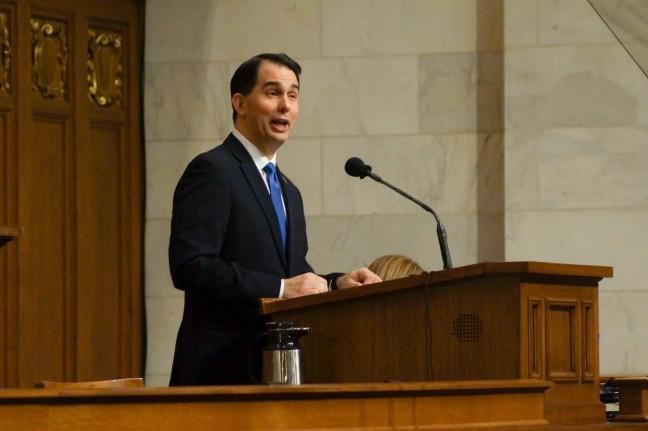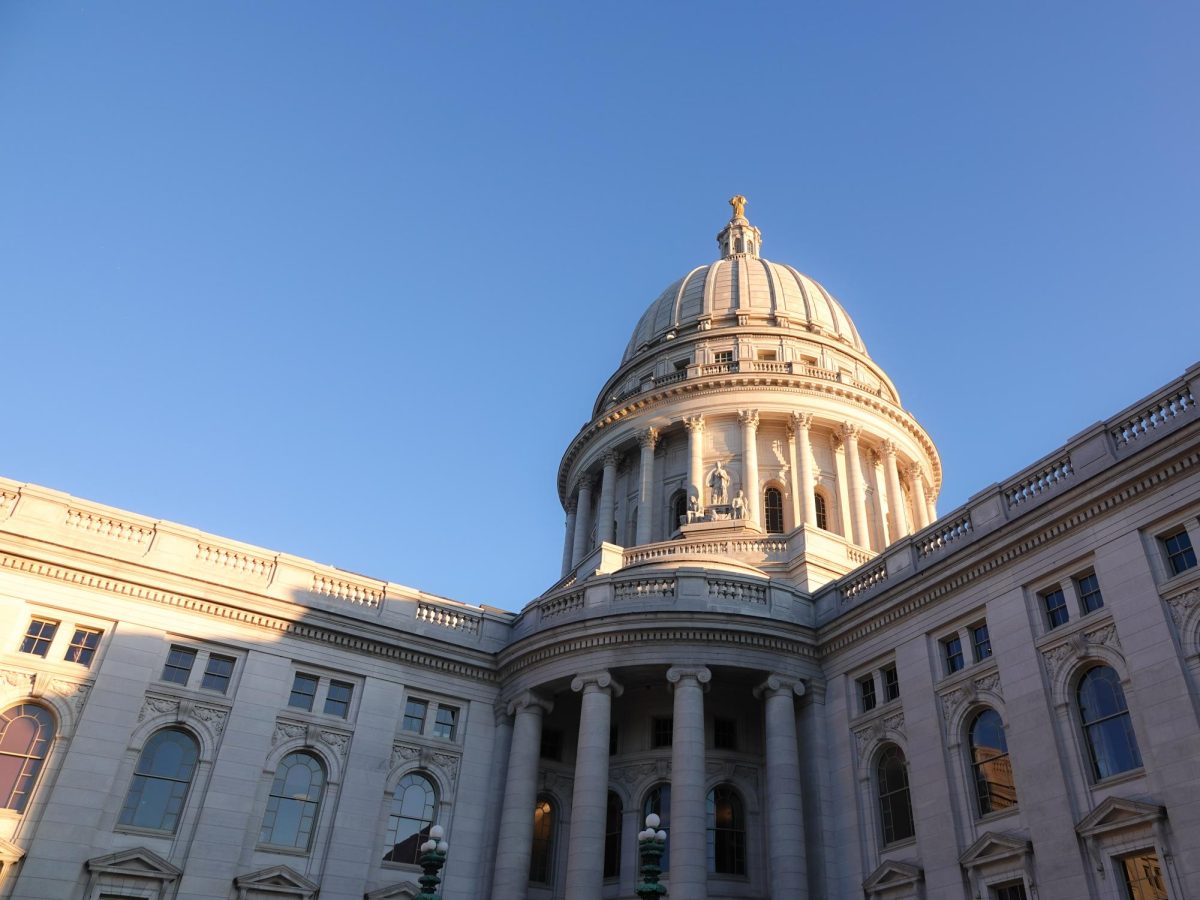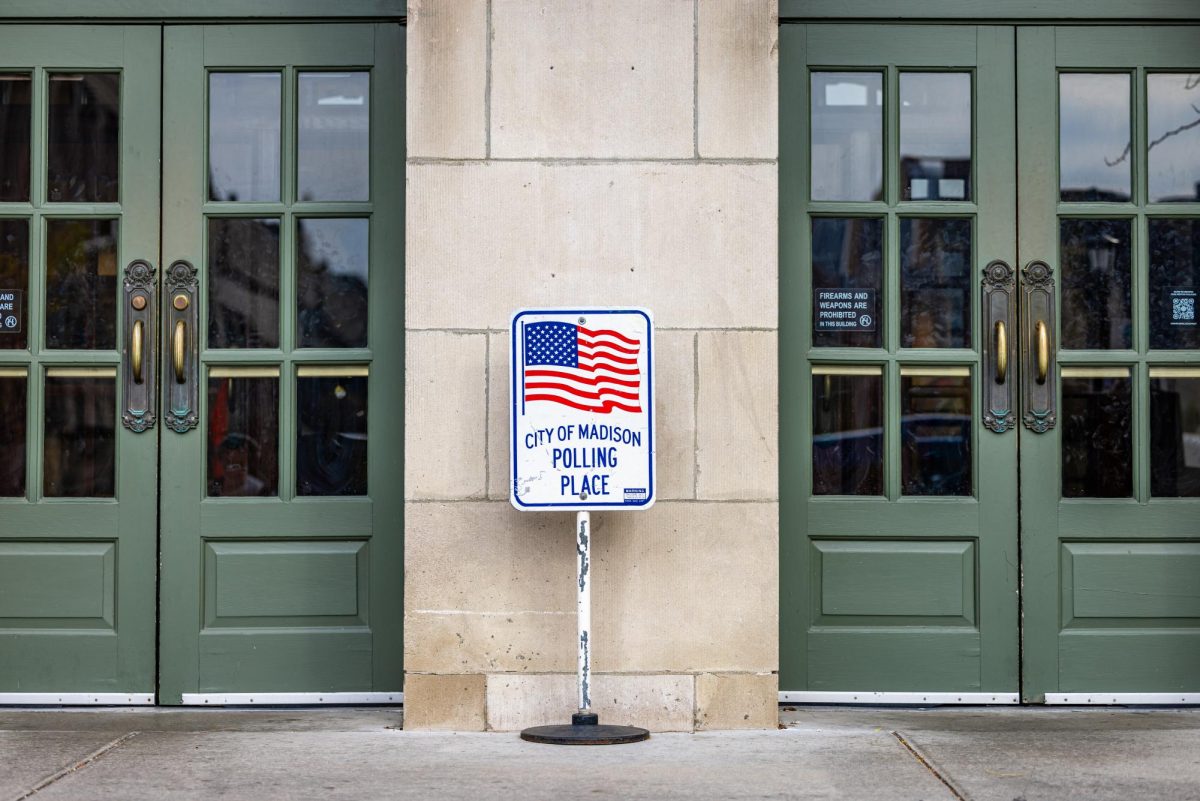Gov. Scott Walker called Wisconsin’s current status “strong,” citing the past year’s success in job, commerce and education sectors in his State of the State Address Tuesday.
Walker touted his college affordability package as a way of decreasing student debt. He said college students saved up to $6,000 on average over four years as a result of the tuition freeze.
Walker proposes plan to make college more affordable, but no financial aid increase for UW System
Walker said he hopes to work with UW System officials and the Board of Regents to make UW System institutions more affordable and increase graduation rates.
$250 million cut to UW System remains as Assembly passes state budget
Ray Cross, UW System President, said in a statement that he applauds Walker’s desire to work with the UW System to ensure a better future for not only Wisconsin students but the state as a whole.
“The university’s future and the future of the state are one and the same,” Cross said. “Making a UW System education more affordable and putting Wisconsin in a better position to retain talent within our institutions is critical to the state’s future.”
Walker emphasized the importance of education to enable Wisconsin residents to find good jobs and ultimately succeed in life.
Wisconsin high schools’ 2015 graduating classes had the second highest ACT scores in the nation, with graduation rates ranking third nationally. Walker highlighted the importance of going beyond a high school education, though, to be more competitive in the modern workforce.
“You see, good-paying careers typically require more than a high school diploma,” Walker said. “We need our young people to have as many excellent higher education options as possible to prepare for the workforce needs of the 21st century.”
He said he plans to invest “every penny of savings” from future state government reform to public education.
Walker announced that the state will provide an additional $3 million to the Wisconsin Fast Forward Program which helps school districts to partner with technical colleges to give students an earlier start working toward their desired careers.
He said he plans to work with the UW System to look at starting a three-year degree in high schools which would continue on UW campuses.
Citing his own experience working various jobs in his youth, Walker addressed the importance of encouraging hard work and independence in Wisconsin’s youth.
“Think about it: No one signs a high school year book saying, ‘Good luck becoming dependent on the government,'” he said. “Instead, we aspire to be able to support ourselves and our families and to provide a good life for future generations.”
Wisconsin’s most recent unemployment rate is the lowest since March 2001, with unemployment claims averaging at their lowest since 1989, Walker said. The state has also seen the largest monthly jobs gain since 1992.
The percentage of people working is 5 points higher than the national rate at 68 percent, Walker said.
“While so many in the media seem to obsess with negative stories, these facts from the federal Department of Labor show more people were working during this past year than at any time in the past two decades,” Walker said.
Addressing taxpayers, Walker said property taxes were $116 lower in the past year than they were in 2010 and homeowners saved $1,227 in the past five years.
In a statement, Assembly Minority Leader Peter Barca, D-Kenosha, said Wisconsin is falling behind under Walker’s leadership when it should be a national leader.
Wisconsin still ranks in the bottom third for job growth nationally and worst in the Midwest, Barca said. It is also the third worst in the nation for student loan debt. Public K-12 schools have seen budget cuts of up to $1 billion since 2010, he said.
“The truth is the state of our state is being neglected by Republicans putting their own needs above the needs of everyday Wisconsinites,” Barca said.
Walker needs to take action and focus on Wisconsin’s workers, public schools and the shrinking middle-class families, Barca said.
Walker announced his 2020 Vision Project, a plan to host listening sessions in every part of the state throughout 2016. He said he wants to hear from a diverse group of people in order to develop a “shared vision” for Wisconsin’s future.
Walker said his main aim was to help more Wisconsinites find a meaningful career and live the “American Dream.”














